Curious what School of Humanities scholars recommend to read and watch? Discover more in our Earth Day 2024 bibliography:
Search
Earth Day 2024: Bibliography
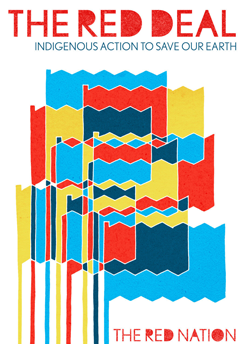
The Red Deal: Indigenous Action to Save Our Earth
By The Red Nation
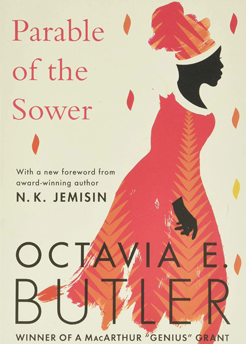
Parable of the Sower
by Octavia Butler
The Red Deal: Indigenous Action to Save Our Earth by The Red Nation
I read this transformative text a few summers ago along with fellow members of UCI’s Climate Futures Collective, and it has since become integral to the way I teach and approach environmental justice. Its authors supplement Green New Deal proposals with calls for Indigenous liberation, and demonstrate why both “colonialism and capitalism must be overturned for this planet to be habitable for human and other-than-human relatives to live dignified lives.”
Parable of the Sower by Octavia Butler
Published in 1993 and set in the then-distant year 2024, Butler’s novel has become a climate fiction mainstay for good reason. After being displaced from her Los Angeles home, the novel’s teenage protagonist must navigate the ecologically ravaged landscape of California while building new forms of community, new ways of life, and even a new religion that she hopes might preserve humankind.
Zachary Korol Gold

Planet B: Climate Change and the New Sublime
by Nicolas Bourriaud
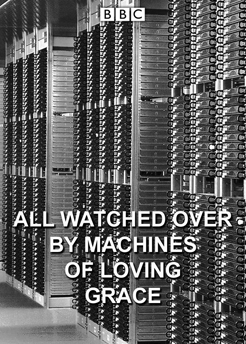
“All Watched over by Machines of Loving Grace”
by Adam Curtis
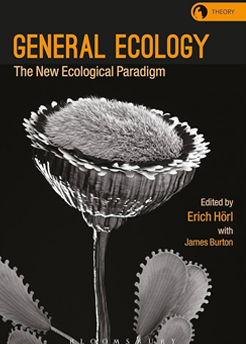
General Ecology: The New Ecological Paradigm
by Erich Hörl
Planet B: Climate Change and the New Sublime by Nicolas Bourriaud
Nicolas Bourriaud is a curator who emerged in the 1990s, and whose curatorial practice has in recent years shifted toward a focus on ecological concerns. This catalog book lays out a theoretical positioning for Bourriaud’s exhibition, describing a “new sublime” prompted by an awareness of the climate crisis and relating it to the Romantic sublime and the history of Western aesthetics.
“All Watched over by Machines of Loving Grace” by Adam Curtis. (London: BBC, 2011)
Adam Curtis’s 3-part documentary traces the emergence of a computational worldview in the 1960s and 1970s, focusing on the roles and theories of individual cultural producers and scientists.
General Ecology: The New Ecological Paradigm by Erich Hörl, ed.
Erich Hörl’s difficult essay that introduces this collection, “General Ecology,” describes ecology as a general historical semantics – that is, a system that structures contemporary thought – and traces its emergence through the dual histories of technology and phenomenology.
Sophie Mariko Wheeler
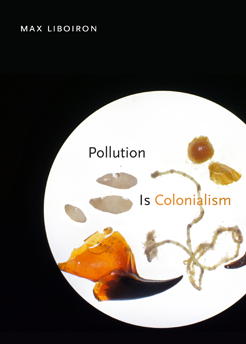
Pollution is Colonialism
by Max Liboiron
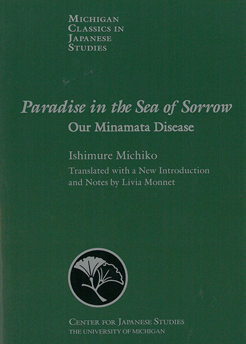
Paradise in the Sea of Sorrow
by Ishimure Michiko
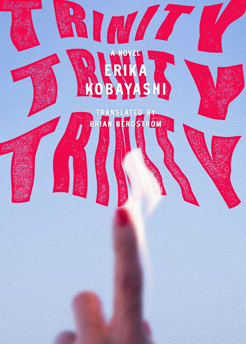
Trinity Trinity Trinity
by Kobayashi Erika
Pollution is Colonialism by Max Liboiron
While this is an academic text, I think it’s a great introduction to anticolonial science and climate change from an Indigenous scholar. This book will offer new lenses for understanding pollution and the terms by which scholars and the general public understands terms like pollution, nature and land.
Paradise in the Sea of Sorrow by Ishimure Michiko
This novel looks at the methyl-mercury poisoning in Minamata Bay, the people and animals affected by mercury poisoning and the ways in which they live with toxicity. This is arguably one of the most important texts in modern Japanese literature and environmental humanities in Japan.
Trinity Trinity Trinity by Kobayashi Erika
Set during the Tokyo 2020 Olympics, Trinity Trinity Trinity is a novel exploring anxieties of radiation, rocks that talk, and a family of women. I recommend it for people especially interested in thinking about radioactivity and feminism in the Anthropocene.
Marianna Davison
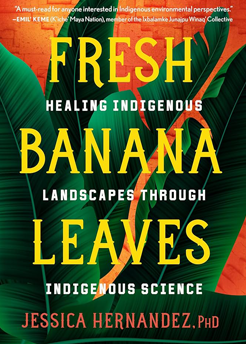
Fresh Banana Leaves: Healing Indigenous Landscapes through Indigenous Science
by Jessica Hernandez
Fresh Banana Leaves: Healing Indigenous Landscapes through Indigenous Science by Jessica Hernandez
One of the many important concepts outlined by Hernandez is “ecocolonialism,” which she uses to critique the ways in which colonial legacies continue to pervade contemporary environmental policies and practices, often at the expense of Indigenous sovereignty and the health of ecosystems. This text is essential for anyone interested in environmental solutions that prioritize decolonial practices and recognize the invaluable contributions of Indigenous knowledge systems to environmental conservation.
